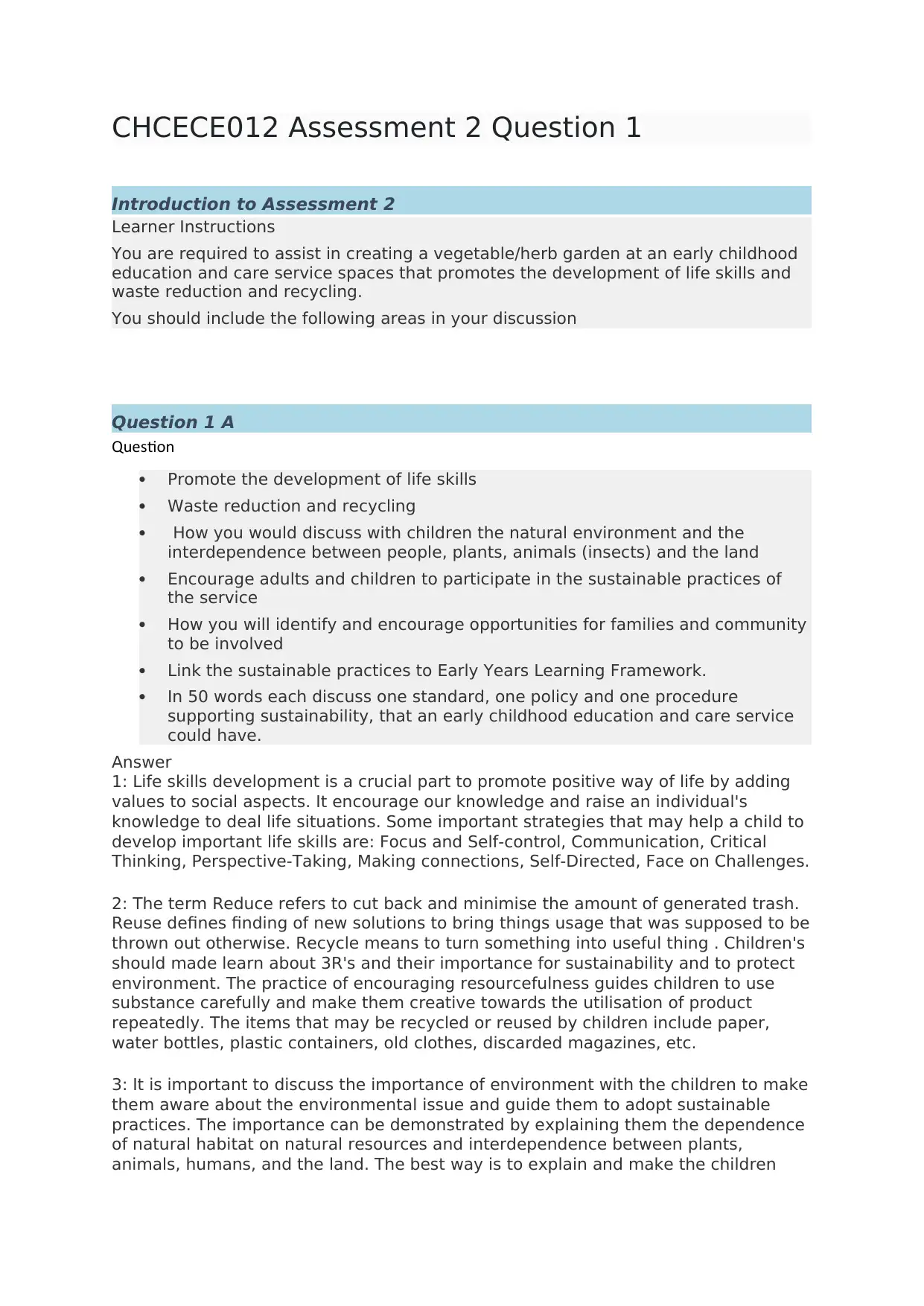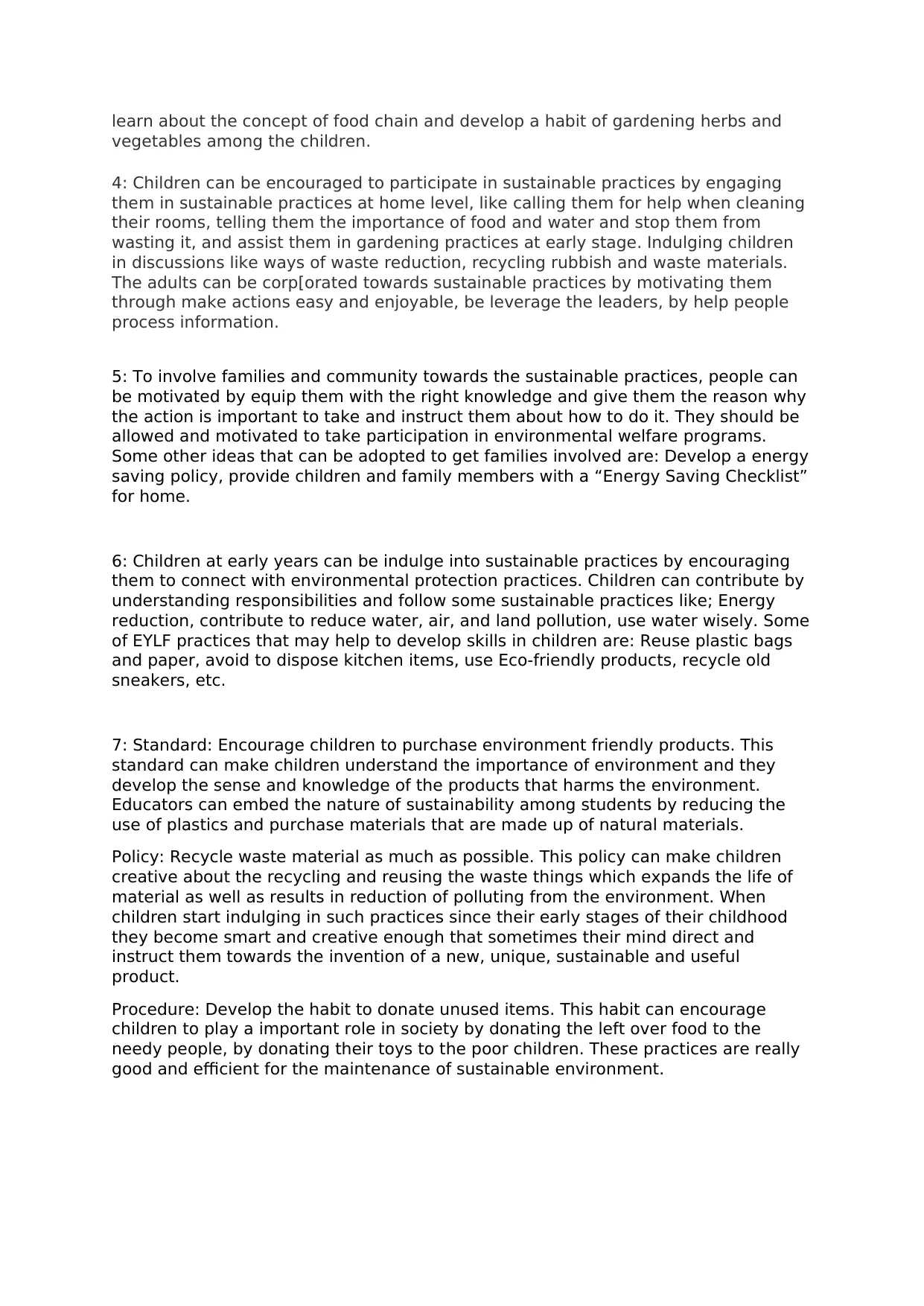CHCECE012: Developing a Sustainable Vegetable Garden Project
VerifiedAdded on 2023/06/09
|2
|920
|313
Homework Assignment
AI Summary
This assignment solution addresses the task of assisting in creating a vegetable/herb garden at an early childhood education and care service to promote life skills, waste reduction, and recycling. It details strategies for promoting life skills development, emphasizing focus, communication, and critical thinking. The solution explains the importance of the 3Rs (Reduce, Reuse, Recycle) and how to discuss the natural environment and interdependence between people, plants, animals, and the land with children. It suggests methods for encouraging both adults and children to participate in sustainable practices, including engaging children in home-level activities and motivating adults through leadership and information. Furthermore, it outlines ways to involve families and the community through energy-saving policies and participation in environmental programs. The response also links these sustainable practices to the Early Years Learning Framework (EYLF) and discusses a standard, policy, and procedure supporting sustainability, such as purchasing environment-friendly products, recycling waste material, and donating unused items.
1 out of 2







![[object Object]](/_next/static/media/star-bottom.7253800d.svg)